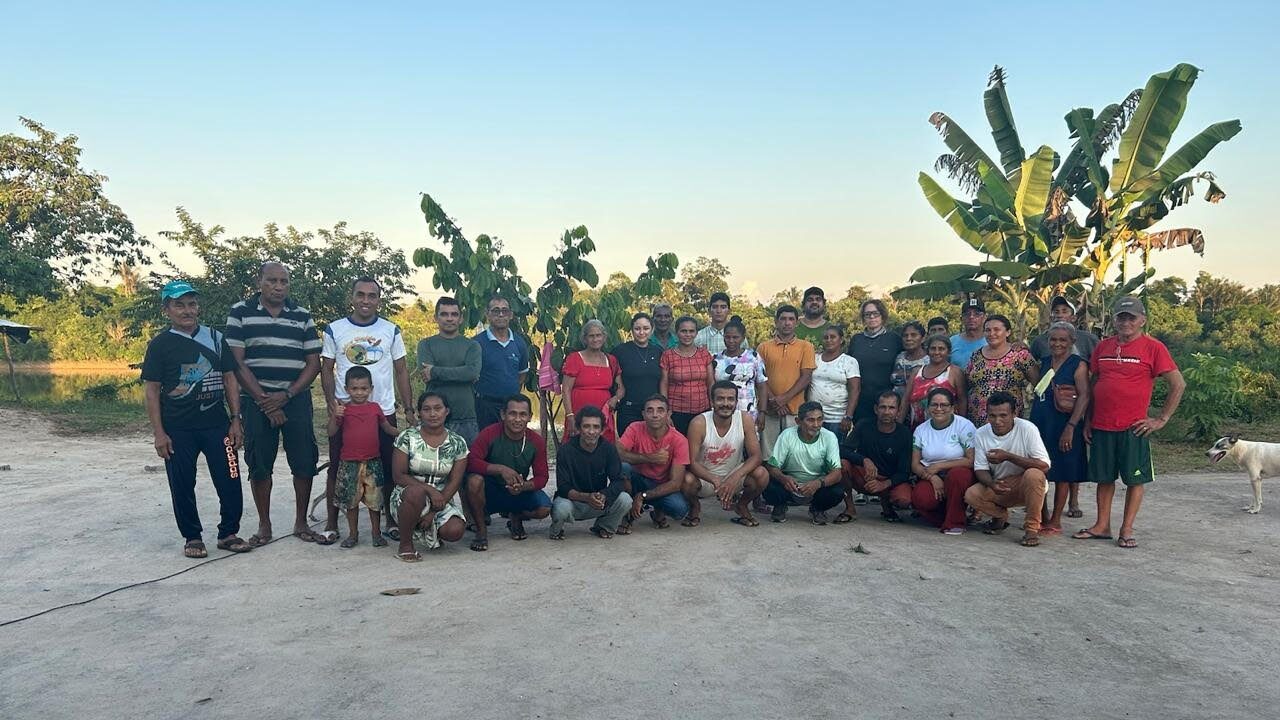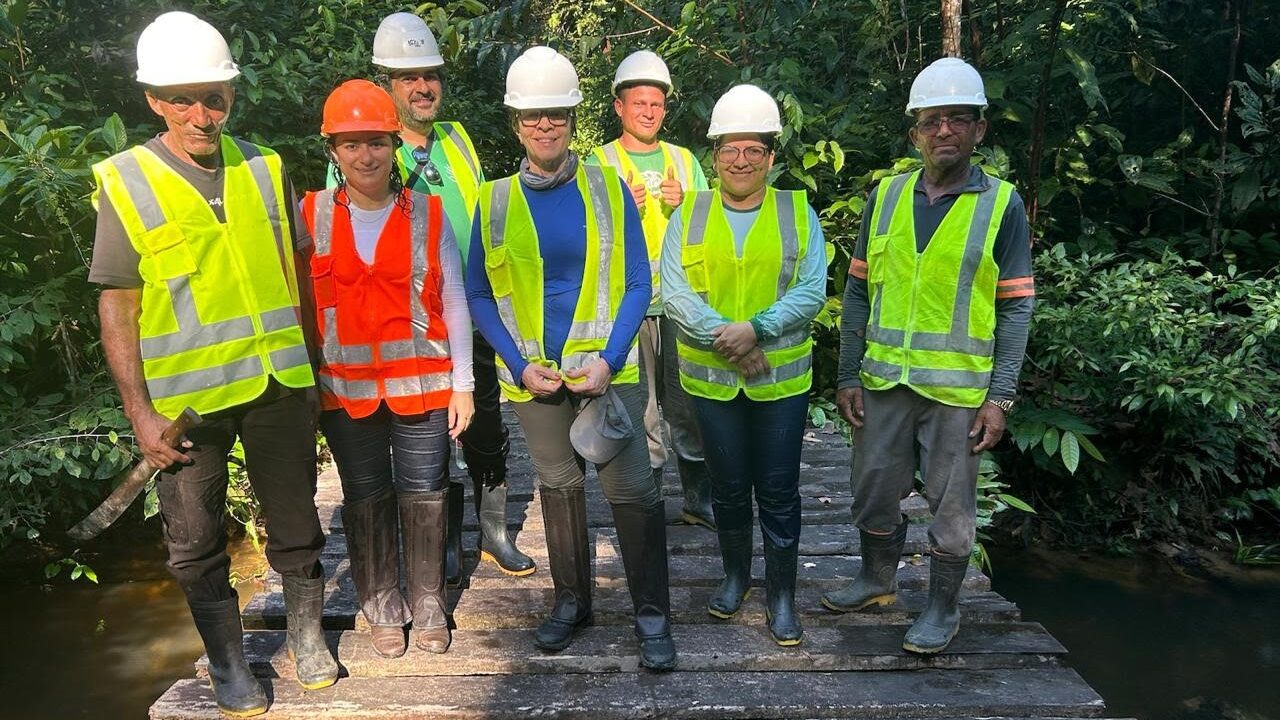Aim was to learn about Idesam and Operation Native Amazon projects that are working on sustainable forest management and strengthening collective commercial arrangements in social and biological diversity chains

Photo: Mônica Fonseca / Fundo Vale
Between June 23 and 30, Fundo Vale sustainability analyst Mônica Fonseca visited Ituxi Extractive Reserve, a federal conservation area in the Amazon inhabited by people who practice sustainable community forest management, collecting natural resources such as Brazil nuts and açaí berries, as well as engaging in fishing and subsistence farming. The purpose of the visit was to learn about projects and economic activities in the area that are supported by civil society organizations.
One of the visited programs is being carried out in partnership with Operation Native Amazon, an organization that since 1969 has been working to strengthen the leadership of indigenous peoples and traditional groups, valuing their cultures, organizations and ways of life. In Ituxi Extractive Reserve, the NGO is working to improve the collective commercial arrangements for collecting Brazil nuts and açaí berries.
“We took part in an evaluation and planning session for the next Brazil nut and açaí berry harvest, alongside representatives of extractive producers’ associations working in the region and employees of the Chico Mendes Institute for Biodiversity Conservation (ICMBio),” says Fonseca.

Photo: Mônica Fonseca / Fundo Vale
The second visited program is supported by the Amazon Conservation and Sustainable Development Institute (Idesam), a civil society organization that has been working for 20 years in the Amazon on behalf of rural producers and traditional, riverside and indigenous communities. Fonseca oversaw activities involved in carrying out a forest inventory as one of the stages of the forest management plan.
“Fundo Vale’s support for this initiative is aimed at community forest management and the conscious use of wood. Our goal is to improve the income of the families living in the reserve by strengthening the value chain, helping develop new businesses such as furniture making and implementing wood management and traceability tools,” she explains.
The importance of these initiatives lies in protecting the biodiversity of the Amazon and promoting sustainable development, ensuring the forest’s conservation while strengthening the socio-bioeconomy, improving the living conditions of inhabitants, encouraging the sustainable management of natural resources and harnessing traditional knowledge.
